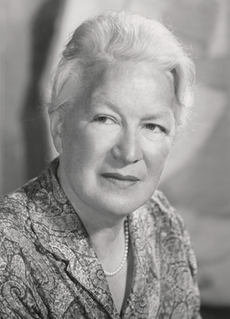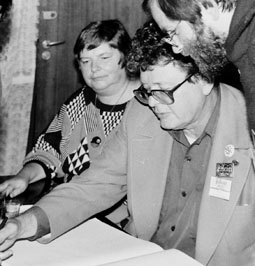A Quote by H. L. Mencken
It is common to assume that human progress affects everyone - that even the dullest man, in these bright days, knows more than any man of, say, the Eighteenth Century, and is far more civilized. This assumption is quite erroneous. . . . The great masses of men, even in this inspired republic, are precisely where the mob was at the dawn of history. They are ignorant, they are dishonest, they are cowardly, they are ignoble. They know little if anything that is worth knowing, and there is not the slightest sign of a natural desire among them to increase their knowledge.
Quote Topics
Affects
Among
Any
Anything
Assume
Assumption
Bright
Bright Days
Century
Civilized
Common
Cowardly
Dawn
Days
Desire
Dishonest
Eighteenth Century
Even
Everyone
Far
Great
History
Human
Human Progress
Ignoble
Ignorant
Increase
Inspired
Know
Knowing
Knowledge
Knows
Little
Man
Masses
Men
Mob
More
Natural
Precisely
Progress
Quite
Republic
Say
Sign
Slightest
Than
Them
Worth
Related Quotes
Moral certainty is always a sign of cultural inferiority. The more uncivilized the man, the surer he is that he knows precisely what is right and what is wrong. All human progress, even in morals, has been the work of men who have doubted the current moral values, not of men who have whooped them up and tried to enforce them. The truly civilized man is always skeptical and tolerant.
What is a Poet? He is a man speaking to men: a man, it is true, endued with more lively sensibility, more enthusiasm and tenderness, who has a greater knowledge of human nature, and a more comprehensive soul, than are supposed to be common among mankind; a man pleased with his own passions and volitions, and who rejoices more than other men in the spirit of life that is in him; delighting to contemplate similar volitions and passions as manifested in the goings-on of the universe, and habitually impelled to create them where he does not find them.
A man is not merely a man but a man among men, in a world of men. Being good at being a man has more to do with a man’s ability to succeed with men and within groups of men than it does with a man’s relationship to any woman or any group of women. When someone tells a man to be a man, they are telling him to be more like other men, more like the majority of men, and ideally more like the men who other men hold in high regard.
History is for human self-knowledge. Knowing yourself means knowing, first, what it is to be a person; secondly, knowing what it is to be the kind of person you are; and thirdly, knowing what it is to be the person you are and nobody else is. Knowing yourself means knowing what you can do; and since nobody knows what they can do until they try, the only clue to what man can do is what man has done. The value of history, then, is that it teaches us what man has done and thus what man is.
For there is no virtue, the honour and credit for which procures a man more odium from the elite than that of justice; and this, because more than any other, it acquires a man power and authority among the common people. For they only honour the valiant and admire the wise, while in addition they also love just men, and put entire trust and confidence in them.
Colonization means potential immortality for the human genus. Man's safety on Earth was never great, and it dwindles hourly. Disarmament, even world government, will not guarantee survival in an age when population presses natural resources to the limit and when the knowledge of how to work mischief on a planetary scale is ever more widely diffused among peoples who may grow ever more desperate.
The so-called Philosophy of India is even more blowsy and senseless than the metaphysics of the West. It is at war with everything we know of the workings of the human mind, and with every sound idea formulated by mankind. If it prevailed in the whole modern world we'd still be in the Thirteenth Century; nay, we'd be back among the Egyptians of the pyramid age. Its only coherent contribution to Western thought has been theosophy-and theosophy is as idiotic as Christian Science. It has absolutely nothing to offer a civilized white man.


































